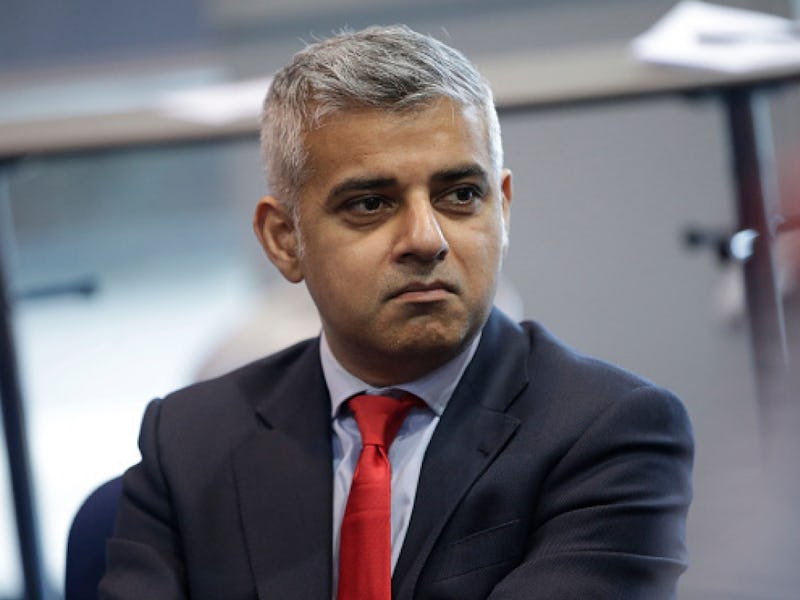London Mayor Sadiq Khan Says Tech Can Solve Cities' "Biggest Issue" at SXSW
"Tech can really help in a number of ways."

London Mayor Sadiq Khan sees both great potential and great danger in how tech can transform — and, in many cases, already has transformed — the world’s cities. But there’s at least one issue where he’s optimistic technology is more likely to be part of the solution than part of the problem.
After delivering a keynote at this year’s SXSW on Tuesday, Khan took questions from moderator Lydia Polgreen, editor in chief of The Huffington Post. When asked about cities’ rapidly declining diversity, the first Muslim mayor of the British capital said the issue went back to the lack of affordable housing.
“This is the biggest issue facing all successful cities, which is that we’re growing, and how to plan for the growth,” Khan said. “And one of the issues you have to plan for is affordable housing, because affordable housing is not affordable currently in London. And we’re doing a variety of things. We have to build more genuinely affordable homes, but tech can really help in a number of ways.”
For Khan, technological change has radically altered how people live and work in big cities, which means it’s necessary to rethink what a metropolis like London even ought to be.
“Firstly, people’s working lifestyles is changing now,” he said. “You can work from home. You don’t need to travel into work.”
That observation suggests a couple potential takeaways. One is that employers might deemphasize the need for workers to travel to an office when it’s not strictly necessary. Another is that might become necessary to rethink transportation infrastructure for a world in which commuting is no longer the norm — or one where the city’s goal is to nudge people toward not commuting when they don’t have to. Both might relieve some of the pressure from the nerve centers of busy cities, perhaps even reducing some of the crowding.
For his part, Khan went in another direction, pointing to how developers — and the governments that help set their construction agendas — should plan to build living spaces that more readily double as working spaces.
“That brings a responsibility on those of us who plan developments,” said Khan. “So I think, just like essential public utilities – water, gas, electric – I think an essential public utility is ultra-fast broadband and we’ve got to make sure we say to developers you’ve got to be designing that into new homes you’re building. Also in London, we have a generation of new work-live spaces. People now work from home but also want to live in communities that are diverse and are nice places to live.”
Khan admitted that realizing the goal of affordable housing in London is likely to be more a marathon than a sprint, as his administration works to undo what he called “the failings of successive governments over multiple decades” to build genuinely affordable housing. But in any scenario, Khan seems intent on including technology a vital part of those long-term efforts.